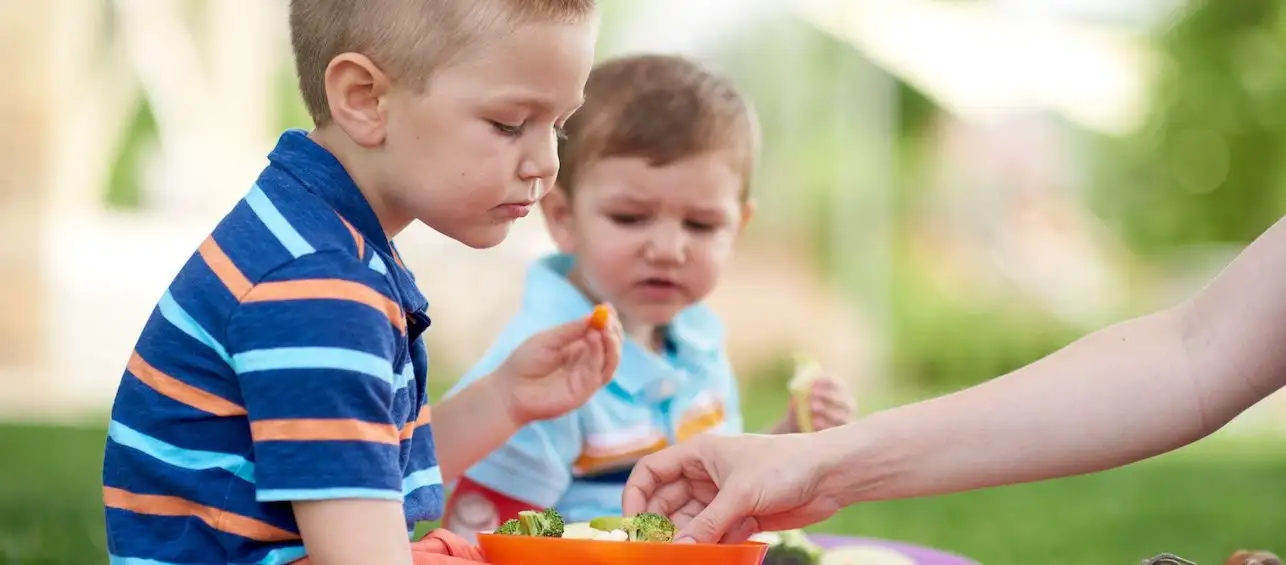My kids love picnics. There’s something exciting about being in the fresh air and enjoying a meal in the great outdoors. The usual foods my family eats every day seem far more delicious when eaten on a blanket in the park.
As a pharmacist and poison specialist in the Drug and Poison Information Center, I usually see an uptick in calls this time of year related to picnics. The most common are food-related illnesses and sunscreen or bug spray poisonings.
As families are making preparations for this weekend and throughout the summer, here are a few tips to prevent some of the more common picnic-related poisonings:
Preparing food
Cross contamination of raw meat is one of the most common food-related illnesses we hear about this time of year. Keep your family safe by following these safety tips:
- Wash hands before and after preparing the meal, especially with raw meat.
- Keep meat that is marinating in the refrigerator, not on the counter.
- Wash cutting boards and knives with hot, soapy water after each use.
- When grilling, use different dishes for raw meat and cooked meat.
- Cook meat to the recommended temperatures to kill bacteria: beef 160°F, poultry 180°F, pork 160°F.
- Cook eggs and shellfish completely.
Packing food
Before you head out the door for a picnic, here are some tips to make sure your food stays safe to eat:
- Pack food as your last step before you leave.
- Pack refrigerated foods in well-insulated coolers that allow space for ice packs.
- Put hot food in an insulated container so it stays hot.
- If you’re not eating right away, put your cooler in the shade and cover with a blanket, rather than leaving it in the car.
- Refrigerate any remaining food within two hours.
Sunscreen
Older sunscreens used para-aminobenzoic acid (PABA), but newer sunscreens contain a variety of ingredients such as cinnamates, salicylates (aspirin-like compounds), zinc oxide and others. Sunscreens are generally considered somewhat safe if a small quantity is eaten, but can cause allergic reactions or skin/eye irritation. Use caution when applying sunscreen to avoid getting it in the eyes or in the mouth, especially with young children.
Insect repellents
Bugs are the uninvited guests of picnics, and DEET (N-diethyl-m-toluamide), is the most effective ingredient to get rid of them. However, there are some precautions to keep in mind when using an insect repellent containing DEET:
- Be sure to spray it away from the face.
- Use caution when spraying it on your children. It should be avoided in infants and can cause seizures in children when used for long periods of time. Use only the lowest concentrations on children (less than 30%), and do not apply continuously.
- Use bug repellents outside to avoid inhaling them.
- Use just enough to cover the exposed skin — applying more does not make them more effective.
- If DEET is ingested, it can cause moderate to severe stomach irritation, nausea, vomiting, and in the most severe cases, neurological damage including seizures and coma.
Now that summer has arrived in Cincinnati, one of our favorite family activities is to pack a picnic and take our bikes out to the park. Sunscreen, bug spray and properly packed lunches ensure we have a safe picnic and happy summer memories.
As always, if you have any questions please call the experts at your Cincinnati Drug and Poison Information Center at (800) 222-1222. We are available to help 24/7.






I just read your blog post about picnic safety tips, and I thought it was very informative. I especially appreciated the tips about cross contamination and packing food. I’m always worried about getting sick from food poisoning, so it’s good to know how to prevent it.
I also liked the tip about putting a blanket over your cooler if you’re not eating right away. That’s something I never would have thought of, but it makes sense.
Thanks for sharing these important safety tips! I’m sure they’ll help me have a safe and enjoyable picnic this summer.